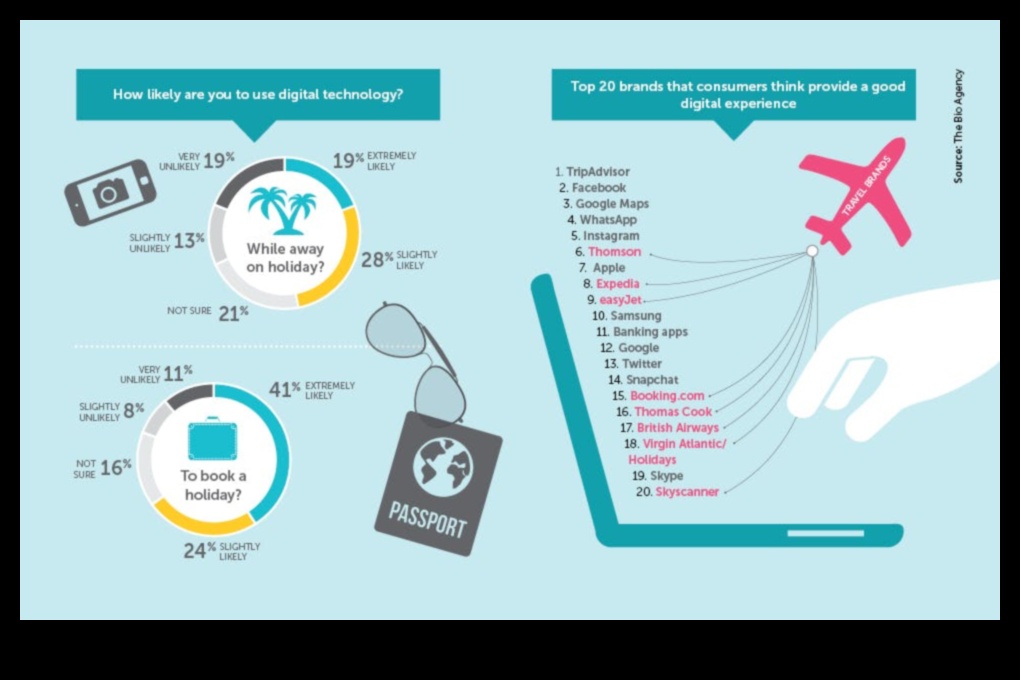
I. Introduction

II. History of Travel Agents
III. The Decline of Travel Agents
IV. The Rise of Online Travel Agencies
V. The Future of Travel Agents
VI. Advantages of Using a Travel Agent
travel agent jobs
travel agent salary
travel agent commission
travel agent requirements
travel agent education
| Feature | Answer |
|---|---|
| Travel agent jobs | There are a variety of travel agent jobs available, including positions in airlines, cruise lines, hotels, and tour operators. |
| Travel agent salary | The average salary for a travel agent is \$46,960 per year. |
| Travel agent commission | Travel agents typically earn a commission on the sales they make. |
| Travel agent requirements | Travel agents typically need a high school diploma or equivalent, as well as some experience in the travel industry. |
| Travel agent education | Travel agents can get formal education in travel and tourism, but it is not required. |
II. History of Travel Agents
Travel agents have been around for centuries, helping people plan their journeys and book their transportation. In the early days, travel agents were the only way to book flights, hotels, and other travel arrangements. However, the rise of online travel agencies in the 1990s changed the landscape of the travel industry. Online travel agencies offered consumers the ability to book their own travel arrangements directly, without the need for a travel agent. This led to a decline in the number of travel agents, as many people chose to book their own travel online.
Despite the decline in the number of travel agents, there are still many reasons to use a travel agent. Travel agents can provide valuable services that can help you plan and book your trip, including:
* Expertise and advice: Travel agents have a wealth of knowledge about the travel industry and can help you find the best deals on flights, hotels, and other travel arrangements. They can also help you plan your itinerary and make sure that you have a smooth and enjoyable trip.
* Convenience: Travel agents can handle all of the details of your trip, from booking flights and hotels to arranging transportation and tours. This can save you time and stress, especially if you are planning a complex trip.
* Peace of mind: Using a travel agent can give you peace of mind knowing that you have someone who is looking out for your best interests. If there is a problem with your trip, your travel agent can help you resolve it.
If you are considering booking a trip, it is worth considering using a travel agent. Travel agents can provide valuable services that can help you plan and book your trip, and they can make sure that you have a smooth and enjoyable experience.

III. The Decline of Travel Agents
The travel industry has been changing rapidly in recent years, and travel agents have been hit hard by the rise of online travel agencies. In the past, travel agents were the primary source of information for travelers, but now they can easily find everything they need to know about a trip online. This has led to a decline in the number of travel agents and a decrease in their revenue.
In addition to the rise of online travel agencies, there are a number of other factors that have contributed to the decline of travel agents. These include:
- The increasing cost of travel
- The changing needs of travelers
- The growth of the self-service travel industry
Despite the challenges facing travel agents, there are still a number of reasons why people choose to use them. These include:
- Personalized service
- Expert advice
- Convenience
Whether or not travel agents will continue to exist in the future is uncertain. However, it is clear that they will need to adapt to the changing needs of travelers in order to survive.

IV. The Rise of Online Travel Agencies
The rise of online travel agencies (OTAs) has had a significant impact on the travel industry. OTAs offer a variety of services to consumers, including booking flights, hotels, and car rentals. They also offer a variety of tools and resources to help consumers plan their trips.
OTAs have been able to gain market share from traditional travel agents by offering lower prices and a wider range of options. They have also been able to take advantage of the growing popularity of online shopping.
The rise of OTAs has had a number of consequences for the travel industry. Traditional travel agents have seen their business decline, and some have even gone out of business. OTAs have also been accused of driving down prices and making it more difficult for travel agents to earn a living.
Despite the challenges facing traditional travel agents, they still play an important role in the travel industry. They can provide personalized service and advice that OTAs cannot match. They can also help consumers with complex travel arrangements.
The future of the travel industry is uncertain, but it is clear that OTAs will continue to play a major role. Traditional travel agents will need to adapt to the changing landscape in order to survive.
V. The Future of Travel Agents
The future of travel agents is uncertain. On the one hand, online travel agencies have made it easier for consumers to book their own travel arrangements. On the other hand, travel agents can provide valuable services that online travel agencies cannot, such as personalized advice, assistance with complex bookings, and emergency assistance.
It is likely that the role of travel agents will continue to evolve in the future. Travel agents will need to adapt their services to meet the needs of consumers in the digital age. They will need to be more knowledgeable about online travel tools and resources, and they will need to be able to provide more personalized and concierge-level service.
Despite the challenges facing the travel industry, there is still a strong demand for travel agents. Consumers value the expertise and guidance that travel agents can provide, and they are willing to pay for this service. As long as there is a demand for travel agents, there will be a place for them in the travel industry.
VI. Advantages of Using a Travel Agent
There are many advantages to using a travel agent, including:
- Expert advice and guidance
- Access to exclusive deals and discounts
- Peace of mind
- Convenience
A travel agent can help you plan your trip from start to finish, taking into account your budget, interests, and travel preferences. They can also help you find the best deals on flights, hotels, and other travel arrangements.
In addition, a travel agent can provide peace of mind by handling all of the details of your trip, so you can relax and enjoy your vacation.
Finally, using a travel agent can be more convenient than booking your trip yourself. A travel agent can take care of all of the paperwork and communication with airlines, hotels, and other travel providers.
VII. Disadvantages of Using a Travel Agent
There are a number of disadvantages to using a travel agent, including:
- Cost. Travel agents typically charge a commission on the total cost of your trip, which can add up to a significant amount of money.
- Limited choice. Travel agents typically work with a limited number of travel providers, which means that you may not have access to the best deals on flights, hotels, and other travel arrangements.
- Lack of expertise. Not all travel agents are created equal. Some may not have the experience or knowledge to help you plan a successful trip.
- Inconvenience. Working with a travel agent can be more time-consuming and inconvenient than booking your own trip online.
Ultimately, the decision of whether or not to use a travel agent is a personal one. You should weigh the pros and cons carefully before making a decision.
How to Choose a Travel Agent
There are a few things to consider when choosing a travel agent.
First, you need to decide what type of travel agent you need. There are two main types of travel agents:
- General travel agents
- Specialist travel agents
General travel agents can help you with all types of travel, including flights, hotels, car rentals, and tours. Specialist travel agents focus on a particular type of travel, such as cruises, adventure travel, or ecotourism.
Once you know what type of travel agent you need, you can start narrowing down your choices. Here are a few things to consider:
- Experience
- Reputation
- Price
- Convenience
You should also make sure that the travel agent you choose is a member of the American Society of Travel Agents (ASTA). This means that they have met certain standards of professionalism and ethics.
Once you have found a few potential travel agents, you can interview them to see if they are a good fit for you. Ask them about their experience, their knowledge of the destinations you are interested in, and their ability to meet your budget and travel needs.
Choosing a travel agent is an important decision. By taking the time to find a good travel agent, you can ensure that you have a positive and enjoyable travel experience.
Here are some tips for working with a travel agent:
Do your research. Before you meet with a travel agent, do some research on your own to get a general idea of what you want and what your budget is. This will help you to be more efficient when you meet with the agent and will make it easier for them to help you find the best deals.
Be clear about your needs. When you meet with the agent, be clear about your needs and what you are looking for. This will help the agent to create a personalized itinerary that meets your specific requirements.
Be flexible. Things can change quickly in the travel industry, so it is important to be flexible when working with a travel agent. Be prepared to make changes to your itinerary if necessary, and don’t be afraid to ask the agent for help if you need it.
Trust your agent. A good travel agent is a valuable asset, and they can help you to make the most of your trip. Trust your agent to do their job and provide you with the best possible service.
X. FAQ
Question 1: What are the advantages of using a travel agent?
Expert advice: Travel agents have access to a wealth of knowledge about destinations, hotels, flights, and other travel-related products. They can help you find the best deals and make sure that your trip goes smoothly.
Personalized service: Travel agents can tailor your trip to your specific needs and interests. They can help you find the right activities, restaurants, and accommodations for your budget and travel style.
Convenience: Travel agents can handle all of the details of your trip, from booking flights and hotels to arranging transportation and excursions. This can save you time and stress.
Question 2: What are the disadvantages of using a travel agent?
Cost: Travel agents typically charge a fee for their services. This fee can range from a few hundred dollars to a few thousand dollars, depending on the complexity of your trip.
Limited availability: Travel agents are not always available, especially during peak travel season. This can make it difficult to get the help you need when you need it.
Conflict of interest: Travel agents may be incentivized to recommend certain travel providers over others, even if those providers are not the best option for you.
Question 3: How do I choose a travel agent?
Do your research: Ask friends and family for recommendations, or read online reviews of travel agents. You can also check with the American Society of Travel Agents (ASTA) to find a certified travel agent in your area.
Interview potential agents: Once you have a few potential agents in mind, schedule an interview with each one. Ask about their experience, their areas of expertise, and their fees.
Make sure you feel comfortable with the agent: You should feel confident that the agent you choose is knowledgeable, experienced, and trustworthy.